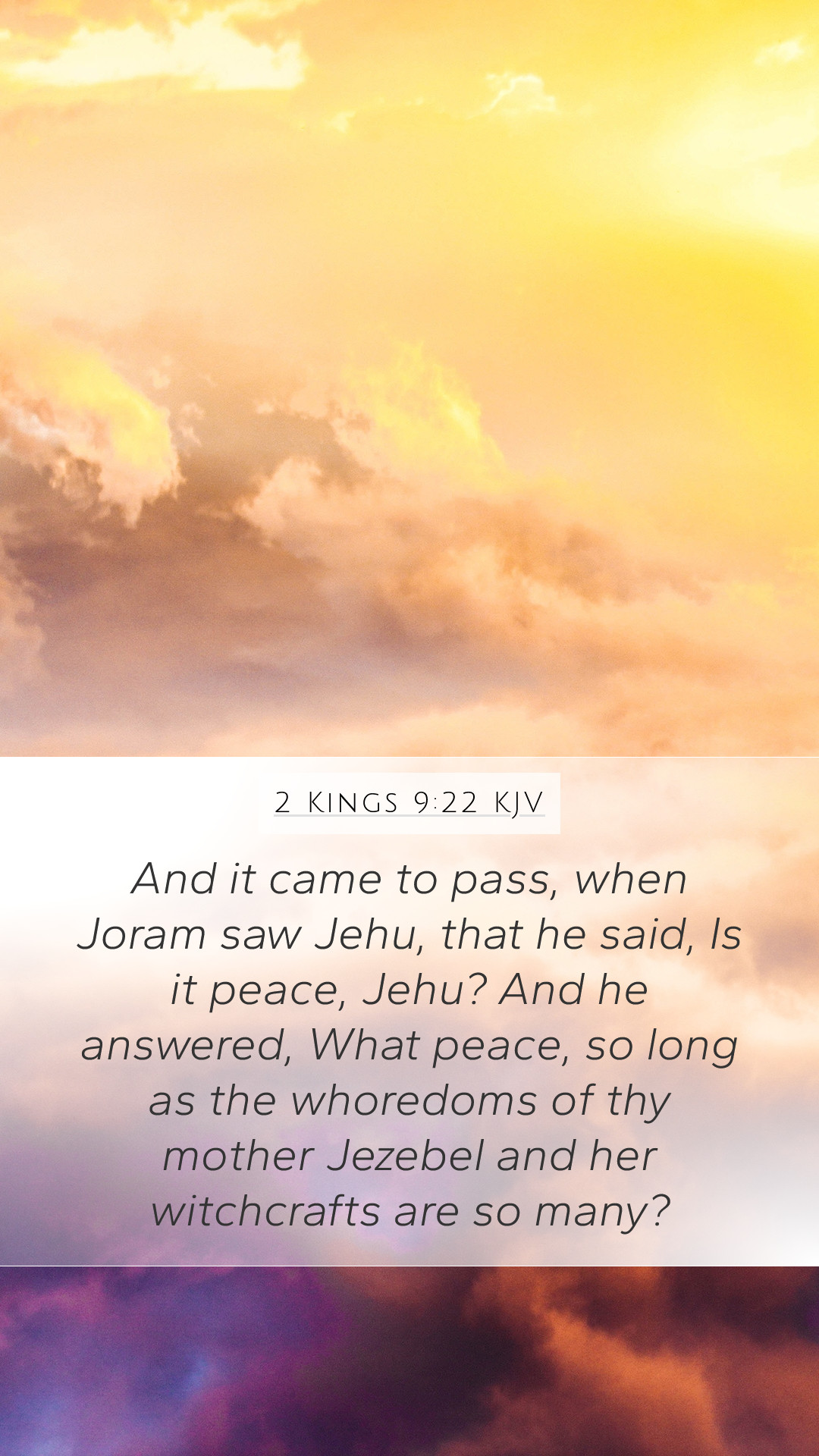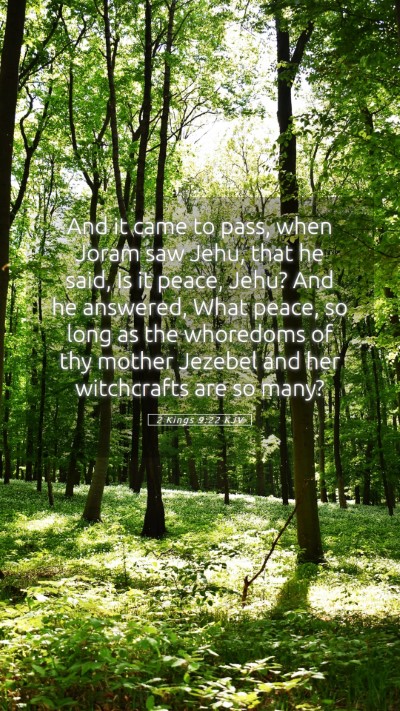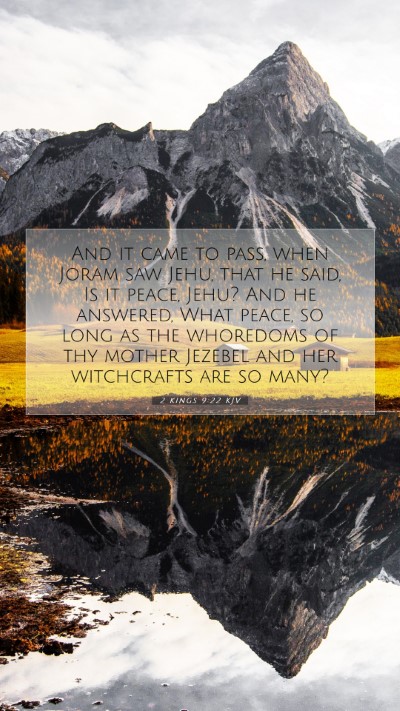Understanding 2 Kings 9:22 - A Comprehensive Bible Verse Commentary
Bible Verse: 2 Kings 9:22 - "And it came to pass, when Joram saw Jehu, that he said, Is it peace, Jehu? And he answered, What peace, so long as the whoredoms of thy mother Jezebel and her witchcrafts are so many?"
Summary of the Verse
This verse captures a critical moment in the biblical narrative where Joram confronts Jehu, marking a turning point in Israel’s history. Joram’s question, “Is it peace?” reveals his misunderstanding of the current circumstances, as Jehu's actions are about to bring judgment upon the house of Ahab and fulfill prophecy. Jehu’s response emphasizes the immorality and idolatry fostered by Jezebel, highlighting a stark contrast between divine judgment and the illusion of peace.
Insights from Public Domain Commentaries
Matthew Henry's Commentary
Matthew Henry elucidates that this encounter signifies a pivotal moment wherein Jehu's wrath against the house of Ahab is justified due to the severe sins associated with Jezebel, who is portrayed as the personification of idolatry and apostasy. Henry notes the irony in Joram’s inquiry about peace, for Jehu’s mission is to execute divine judgment rather than extend tranquility. Henry emphasizes the moral decay represented by Jezebel's witchcraft and unfaithfulness, linking it to the broader theme of Israel’s spiritual corruption.
Albert Barnes' Notes on the Bible
Albert Barnes provides a historical context to this confrontation, noting that Joram's question about peace signifies his awareness of the political tensions and discord wrought by Jezebel's influence. Barnes interprets Jehu's reply as a stark warning and an indictment of the sinful practices that have ensnared Israel, pointing out the depth of evil manifest in Jezebel’s legacy. This moment serves as a prophetic declaration of the forthcoming judgment as the culmination of a long line of sinful behavior fostered by idolatry. Barnes emphasizes the inherent connection between moral conduct and divine providence.
Adam Clarke's Commentary
Adam Clarke focuses on the significance of the terms used in Jehu’s response, particularly the notion of “whoredoms” as a metaphor for idolatry. Clarke indicates that Jehu’s declaration is not merely a personal grievance but reflects the comprehensive judgment against the nation for its unfaithfulness. Additionally, Clarke discusses the implications for the Israelite community and their need for repentance and reform in light of Jehu’s forthcoming actions against Joram and the house of Ahab.
Application of the Verse
The message conveyed in this scripture is profoundly relevant for modern readers, emphasizing the need for discernment in recognizing true peace versus the façade of tranquility. It serves as a reminder of the spiritual vigilance required against societal influences that promote immorality and idolatry. Believers are called to reflect on the consequences of personal and communal sin, acknowledging that divine judgment follows a pattern of unfaithfulness.
Cross References
- 1 Kings 21:25: Describes Jezebel's influence on Ahab and the extent of their wickedness in Israel.
- 2 Kings 9:7: Jehu’s commission from God to destroy the house of Ahab.
- Revelation 2:20: References a similar spiritual adultery as characterized by Jezebel in the church of Thyatira.
Conclusion
This analysis of 2 Kings 9:22 offers rich insights into the historical and theological implications of the text. By understanding this verse better, individuals engaging in Bible study can glean valuable lessons on the realities of spiritual faithfulness and the serious consequences of idolatry. This commentary serves as a foundation for in-depth Bible verse analysis and can contribute significantly to Bible study discussions, helping believers to internalize the call for righteousness amidst societal challenges.


